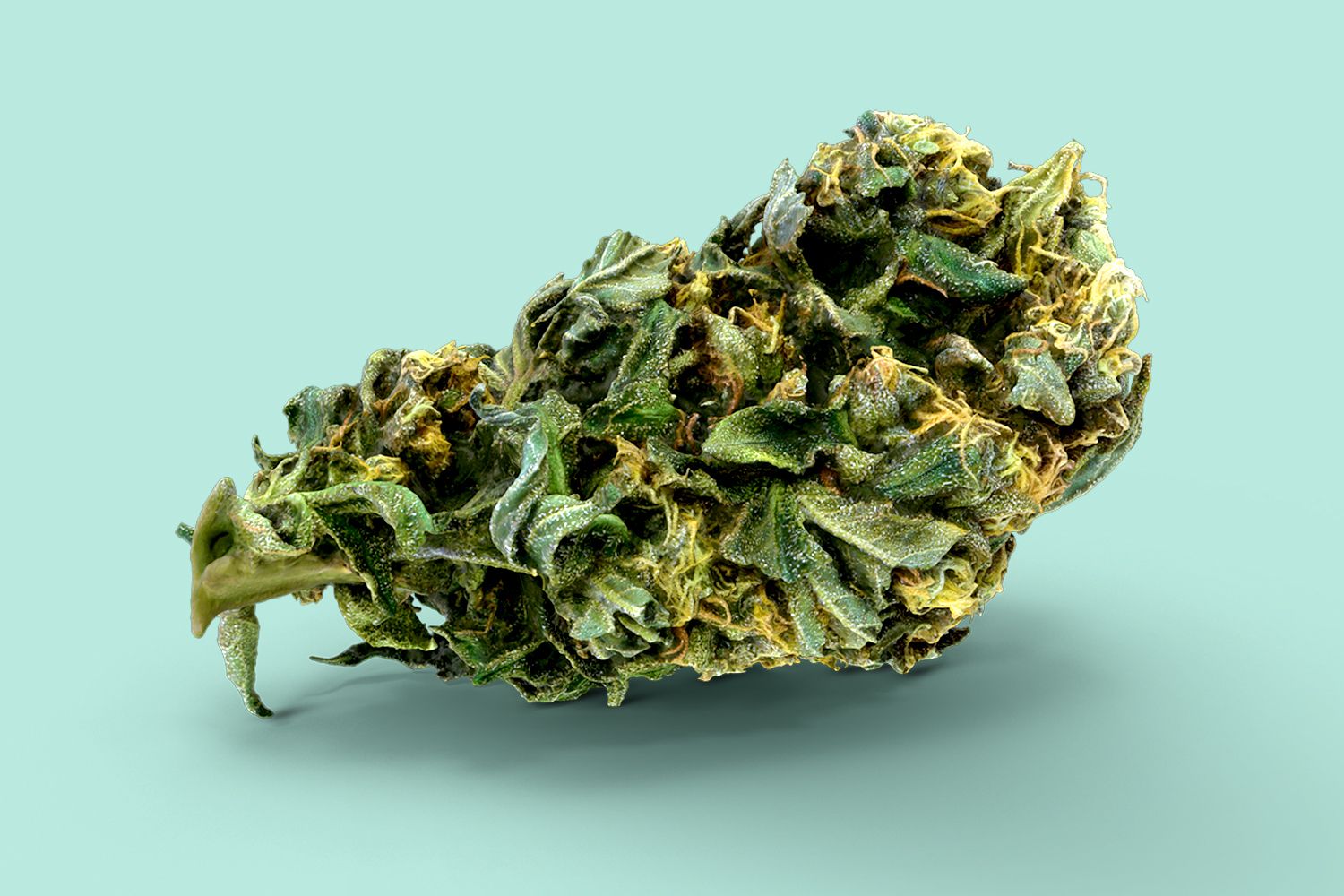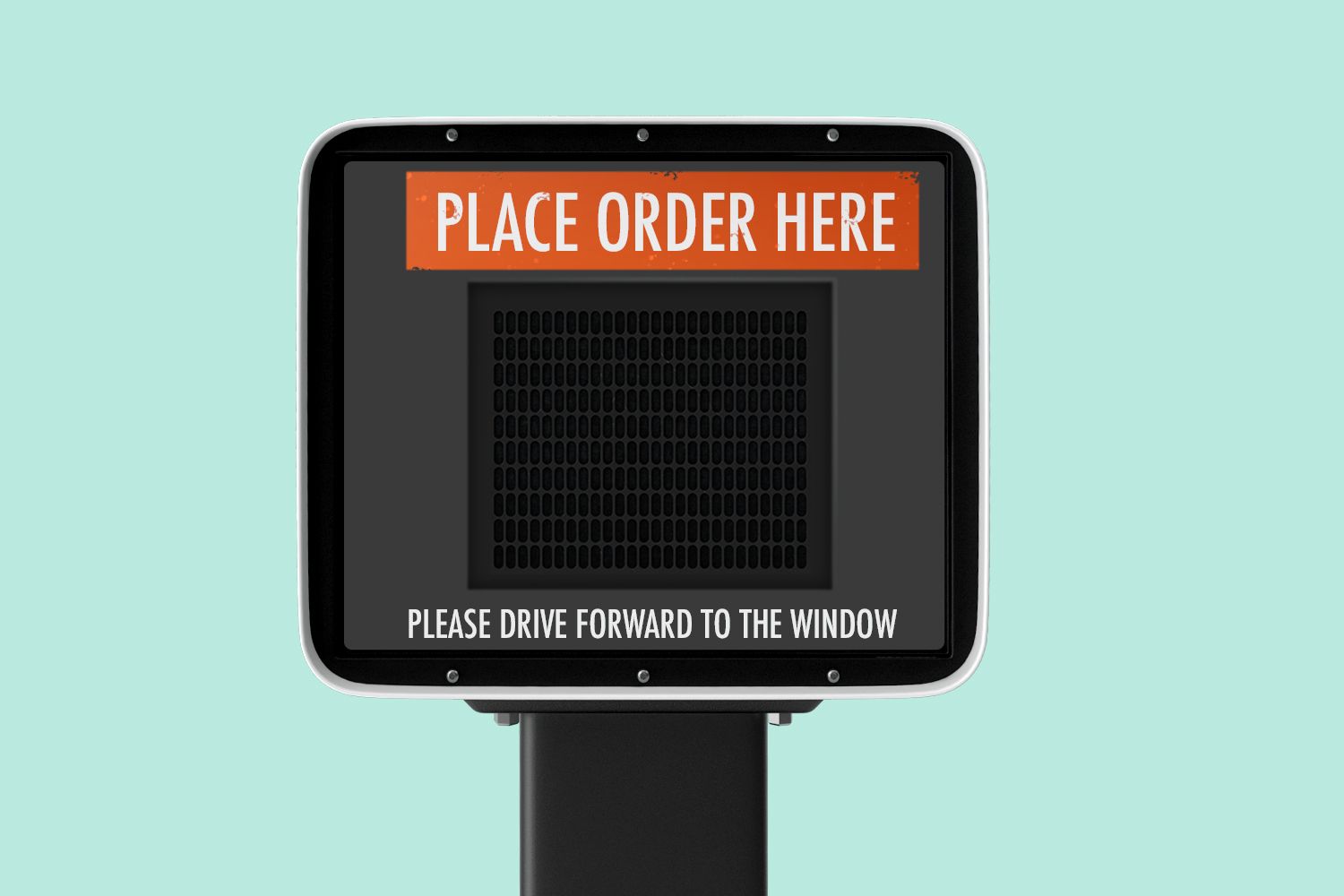Hi there. It’s Friday. That means we are playing “Closing Time” on this week’s giveaway of snazzy Retail Brew coffee mugs.
Ran out of friends to refer? Word to the wise: Drop your custom referral link to Retail Brew in your company’s favorite Slack channel. (Ours is a close call between #dogcontent and #breweats.)
Get sharing before the giveaway ends on Sunday at 11:59pm ET.
In today’s edition:
- How Jane Tech brings cannabis companies online
- Drive-thrus are slowing down
- UK’s CO2 shortage struggles
—Julia Gray, Katishi Maake, Jeena Sharma
|
|
|
Francis Scialabba
After serving as a helicopter pilot in the army for several years, Socrates Rosenfeld turned to cannabis as a sort of meditative medicine. And in 2014, as a McKinsey analyst studying “aggregators” like DoorDash, he saw an opportunity in the budding space.
Around that time, Rosenfeld predicted that in a few years “the cannabis consumer will expect to shop online.” He reasoned that the experience should be as seamless as buying groceries or shoes—a digital world where you can read customer reviews that say which sneakers run a size small and which edible knocks you out—but the industry (and the law) wasn’t quite there yet.
“We saw the industry, where you had no online payments, no ability to go direct to consumer. We had all of these offline, fragmented, small local businesses without any sophistication in terms of technology,” Rosenfeld told Retail Brew.
So, he left his job at McKinsey in 2016 and cofounded Jane Technologies, a company that builds and powers dispensaries’ e-commerce operations.
High times: Jane says it now makes up 20% of all legal cannabis sales in the US, per internal data. And last month, the company announced a $100 million Series C financing round.
- The funding brought Jane’s total amount raised to $130 million.
The pandemic lit up the cannabis industry: It was deemed an essential business in the US—a boon for Jane. “Cannabis became a first-class citizen in the world,” Rosenfeld said. “It pushed a lot of people online.”
Only 17% of legal cannabis sales were done online pre-Covid, per Jane’s data, but e-comm sales reached a high of 52% in 2020. Now, online transactions account for 38% of all legal cannabis sales.
- From 2019 to 2021, Rosenfeld said Jane went from $100 million in total transaction volume to a projected $3.5 billion.
Back in the day
When Jane started out, Rosenfeld found that dispensaries were accustomed to avoiding any traceable digital footprint. But as cannabis became more mainstream and retailers realized they needed an online presence to compete in the market, Jane was there to step in and capitalize on the learning curve.
“Five years ago, you’d walk into a purchasing manager’s office, and he or she would say, ‘I know what’s trending because my friends on the street are telling me that Blue Dream is really hot…so I’m going to buy a lot of these strains.’ That’s one way to run a business,” the 39-year-old CEO said. “But in a digital world, you have to use data and you have to use really actionable, real-time local data.”
Jane is counting on that personalization to differentiate itself.
Click here to read more about how Jane clears the smoke and mirrors to bring cannabis companies online.—JG
|
|
|
Francis Scialabba
You want fries with that shake? Give it an extra 26 seconds, if you’re ordering from a drive-thru.
This year, customers are waiting longer—and getting more inaccurate orders—at drive-thrus, according to a new study from SeeLevel HX.
- The average total time to receive an order was 382 seconds in 2021, up from 356 seconds in 2020.
- 15% of orders were inaccurate this year, compared to 13% last year.
- An inaccurate order added 71 seconds to total wait time.
Getting it right: Chick-fil-A topped the survey for accuracy, followed by Taco Bel. Arby’s, Burger King, and Carl’s Jr. were all tied for third.
Order up: QSRs are struggling with a host of challenges as the pandemic continues, from staffing to inflation, noted Lisa van Kesteren, CEO of SeeLevel HX, in a statement.
“To prevent brand vulnerability, restaurants would be better served by compromising in some areas in order to consistently deliver a rewarding drive-thru experience,” Kesteren said. “We’re already seeing this with the top QSRs limiting indoor dining and reducing store hours.”
-
Taco Bell, for example, in March said it would expand its Go Mobile remodel, which features two drive-thru lanes and smaller dining spaces. (It’s even working on a concept with four drive-thru lanes.)—KM
|
|
|
|
To turn a one-time customer into a lifelong fan, you have to get the post-purchase experience justttt right. Route for Merchants can help you do just that.
What is Route for Merchants? It’s a fully integrated, modern platform that’s free for merchants and incredibly convenient for consumers.
Like amigos and branches of government, it’s also three-pronged:
-
Proactive, accessible, and on-brand package tracking, including notifications.
-
Package protection that juices profits and gives customers peace of mind.
-
Discovery that allows customers to connect with you—it’s not just a catalog.
Maybe we should reiterate...all those features are completely free for you, an online merchant.
With all those free tools, this platform empowers merchants of any size or industry to provide customers with a seamless, convenient post-purchase experience.
Try out Route for Merchants here.
|
|
|
Giphy
No, no, no, not the soda.
That’s what we imagine crowds of shoppers in the UK were saying to themselves after the British Soft Drinks Association this week warned that some fizzy-drink manufacturers had a “few days” of CO2 reserves left.
- Carbon dioxide is key to producing carbonated drinks (and some beer), as well as extending a product’s shelf life.
What’s the deal? Blame soaring natural gas prices, which led two of the largest fertilizer plants in Britain to suspend operations. (Yup, that’s one way we get those bubbles.)
The UK government quickly agreed to offer “limited financial support” to restart fertilizer production, helping ease some concerns. But plenty of other supply-chain issues haunt the UK’s soda lovers, including trucker shortages, which means the drinks won’t necessarily be flowing.
-
Plus, while ~20% of the UK’s carbon dioxide is imported, largely from Scandinavia and the Netherlands, European fertilizer plants are also experiencing cutbacks due to rising fuel prices and are prioritizing EU clients.
This on top of an aluminum-can shortage that hit Coca-Cola’s British bottling biz; consumers complained on social media earlier this month about a lack of Diet Coke and Coke Zero in the country.
Remember when...The US faced its own CO2 shortage last year, when Covid forced ethanol plants to close.—JS
|
|
-
Kering, the luxury giant that owns Gucci and more, will ban fur across its labels.
-
Nike cut its revenue projections for the 2022 fiscal year due to supply-chain issues.
-
A new California law would require warehouses (that means Amazon) to disclose its quotas and productivity measures.
-
Target will hire 100,000 seasonal employees for the holidays, down 30,000 workers from years prior.
-
Impossible Foods is introducing meatless pork products.
|
|
|
|
Kings who are also always right. Yep, we’re talking about customers—keep those important folks happy with the Route for Merchants platform. It keeps ’em smiling with multichannel, accessible tracking; that means notifications, branded assets, and product recommendations. Try Route for Merchants here.
|
|
Today’s top retail reads.
Stocked up: Businesses that pivoted to selling hand sanitizers, masks, and more during the pandemic now wrestle with stockpiles of unused goods. (NBC News)
Total recall: Brands are owning up to their shortcomings while trying to be sustainable, in a bid to be transparent and gain consumer trust. (Vogue Business)
Power moves: Dick’s Sporting Goods’ Lauren Hobart on being a “nonfamily CEO” and a female leader. (the Wall Street Journal)
|
|
Catch up on the Retail Brew stories you may have missed.
|
|
Three of the stories below are real...and one is most definitely not. Can you spot the fake?
-
Apple is working on a new flip-phone prototype.
-
Cardi B is releasing a vodka-infused whipped cream.
-
Essentia will come out with a two-gallon box of its ionized alkaline water.
-
Billie Eilish’s image is plastered on the new Amazon Echo Studio.
Keep reading for the answer.
|
|
|
Enjoying Retail Brew? Share it with your coworkers to 1) impress them with your industry knowledge and 2) earn some free swag.
We've made it as easy as possbile:
click here to send a quick email about Retail Brew with your unique referral link.

Hit the button below to learn more and access your rewards hub.
Click to ShareOr copy & paste your referral link to others:
morningbrew.com/retail/r/?kid=303a04a9
|
|
|
No, Apple isn’t throwing it back with a new flip phone.
|
|
|
Written by
Julia Gray, Katishi Maake, and Jeena Sharma
Was this email forwarded to you? Sign up
here.
WANT MORE BREW?
Industry news, with a sense of humor →
-
HR Brew: analysis of the employee-employer relationship
Tips for smarter living →
 Podcasts →
Business Casual
and
Founder's Journal
Podcasts →
Business Casual
and
Founder's Journal
Accelerate Your Career →
-
MB/A: virtual 8-week program designed to broaden your skill set
|
ADVERTISE
//
CAREERS
//
SHOP
//
FAQ
Update your email preferences or unsubscribe
here.
View our privacy policy
here.
Copyright ©
2021
Morning Brew. All rights reserved.
22 W 19th St, 8th Floor, New York, NY 10011
|
|









